Publications
Articles, publications, books, tools and multimedia features from the U.S. Institute of Peace provide the latest news, analysis, research findings, practitioner guides and reports, all related to the conflict zones and issues that are at the center of the Institute’s work to prevent and reduce violent conflict.
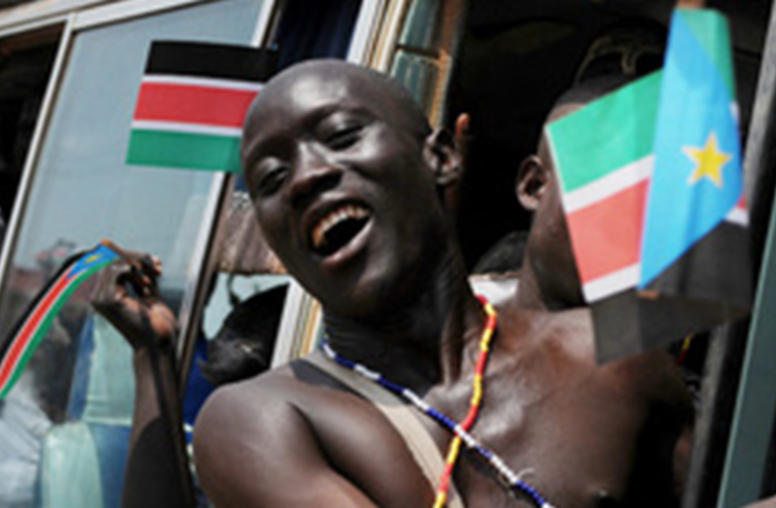
First Anniversary of the Independence of South Sudan
As South Sudan celebrates the first anniversary of its independence, USIP offers a range of resources for examining the new country's first year and for beginning to discuss its trajectory in the coming years.
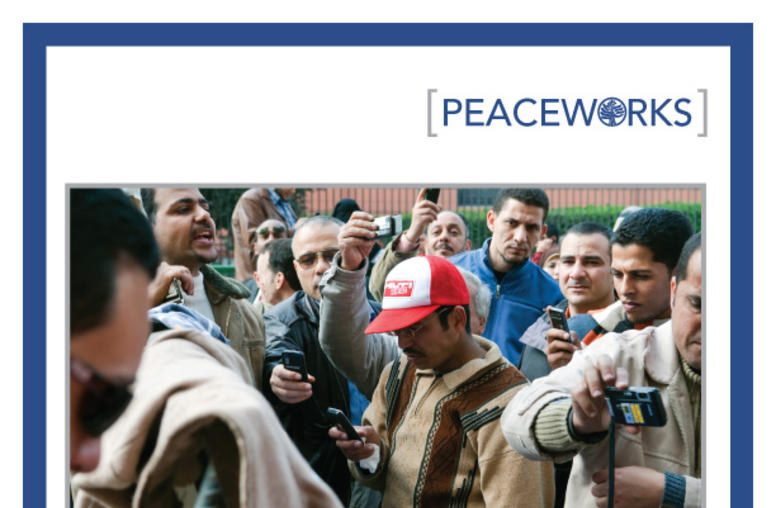
Blogs and Bullets II: New Media and Conflict after the Arab Spring
Based on Twitter and Facebook data gathered during the 2011 Arab revolutions, the authors of this Peaceworks report find that new media informed international audiences and mainstream media reporting, but they find less evidence that it played a direct role in organizing protests or allowing local audiences to share self-generated news directly with one another.
USIP President Solomon Introduces Defense Secretary Panetta
USIP President Richard Solomon introduces Defense Secretary Leon Panetta before he delivered the 2012 Dean Acheson Lecture.
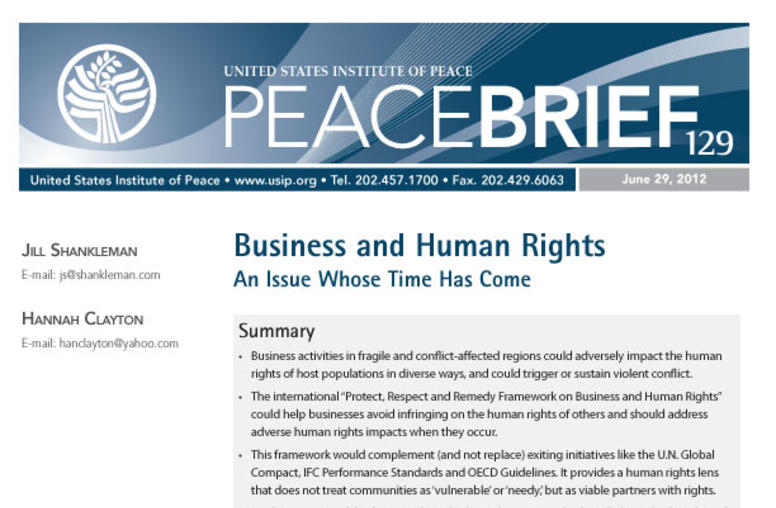
Business and Human Rights
USIP’s Center for Sustainable Economies hosts a taskforce on business and peace, which explores creative and effective ways in which the corporate sector could avoid fomenting conflict while being aware of actions that could promote peace. This report contributes to the work of the task force by using a conflict-sensitive framework to address this issue.
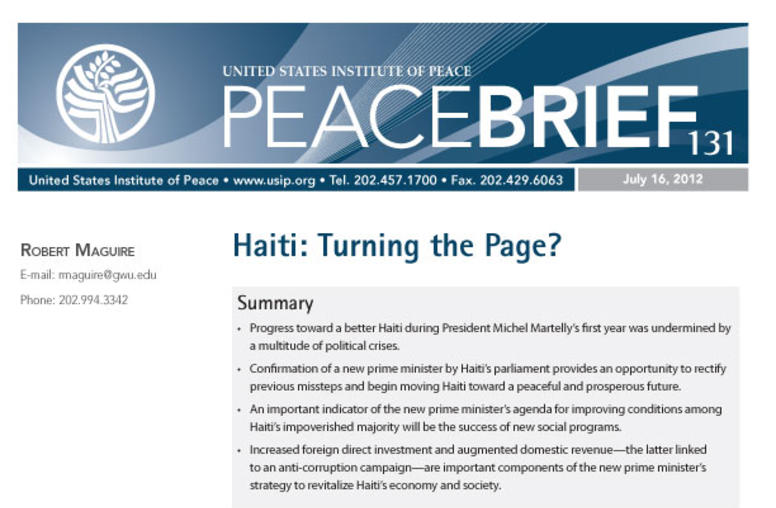
Haiti: Turning the Page?
Confirmation of a new prime minister by Haiti’s parliament provides an opportunity to rectify previous missteps and begin moving Haiti toward a peaceful and prosperous future.
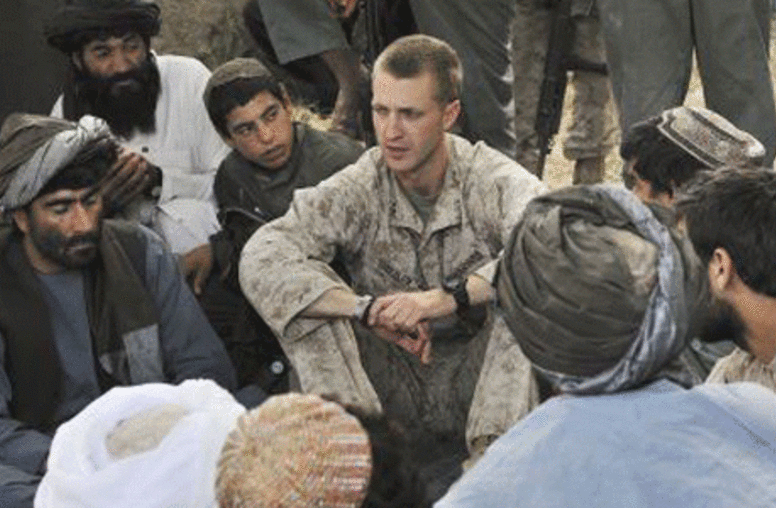
Planning for the Unforeseen
The "Mass Atrocity Prevention and Response Options Tabletop Exercise," held June 12 and 13 at USIP, brought together key government agencies for an exercise designed to build relationships between agencies and help participants become more comfortable with planning for a potential mass atrocity in the fictional country of Atropia.
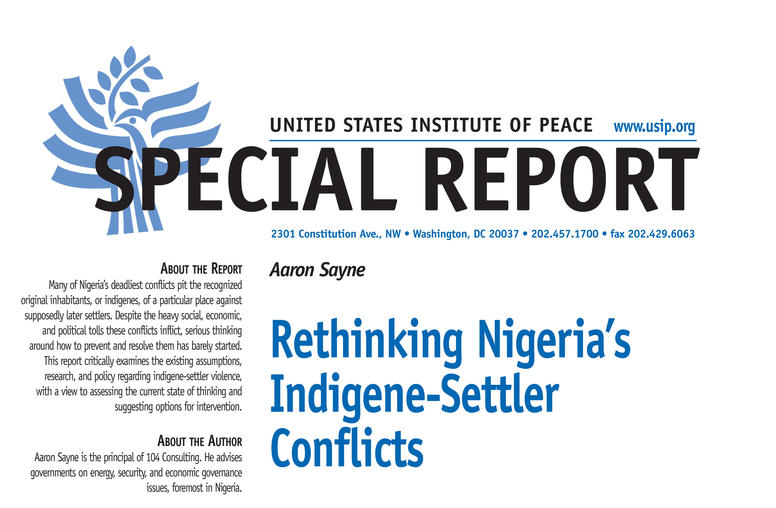
Rethinking Nigeria’s Indigene-Settler Conflicts
A key divide in Nigeria is that between citizens who are deemed indigenous and those who arrived more recently. This new report says the government must do better to hold accountable those who commit indigene-settler violence and to foster greater equality in the land, education, infrastructure, and government jobs available to both groups.
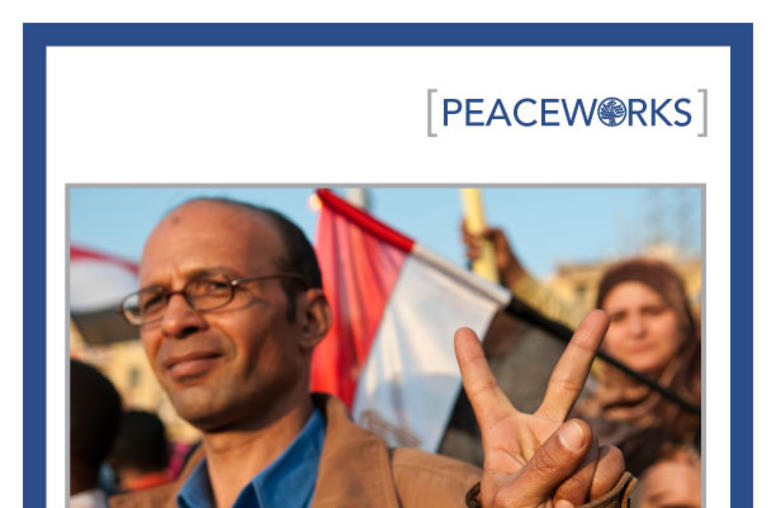
Democratic Breakthroughs: The Ingredients of Successful Revolts
Although each revolution is different, each successful case of democratic breakthrough shares common domestic and international influences. This report examines 11 cases of past successes at removing autocratic regimes and establishing elections. It then applies its findings to the emerging revolutions of the Arab Spring.
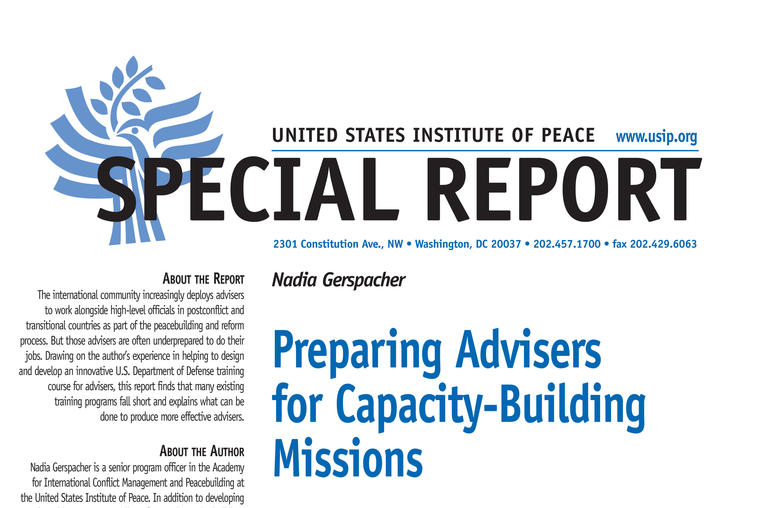
Preparing Advisers for Capacity-Building Missions
Preparing high-level advisers to support reform of postconflict states requires specific training in how to transfer knowledge in a complex, alien environment, how to operate without formal authority, and how to cultivate local ownership.
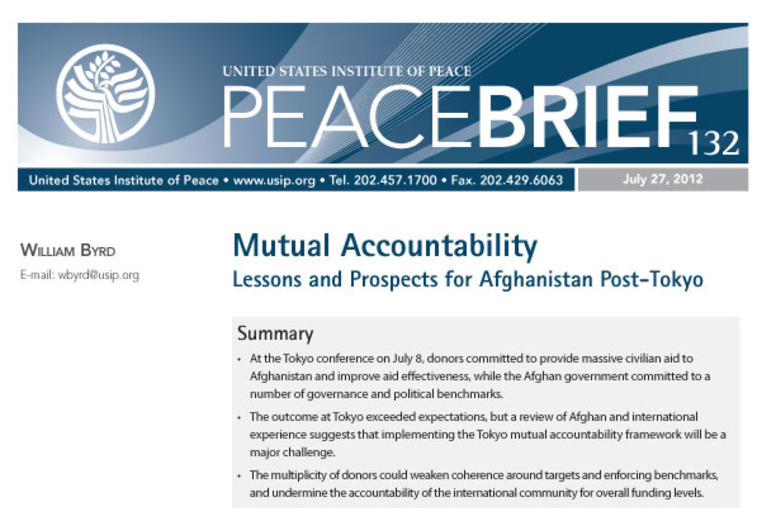
Mutual Accountability
This paper builds on remarks on mutual accountability at the July 18 U.S. Institute of Peace panel discussion “From Transition to the Transformation Decade: Afghanistan’s Economic and Governance Agenda after Tokyo” (second session on “Filling the trust gap—what does ‘mutual accountability’ mean, what are the first steps, what is the role of civil society?”). The views expressed in this brief do not necessarily reflect the views of the U.S. Institute of Peace, which does not take policy positi...